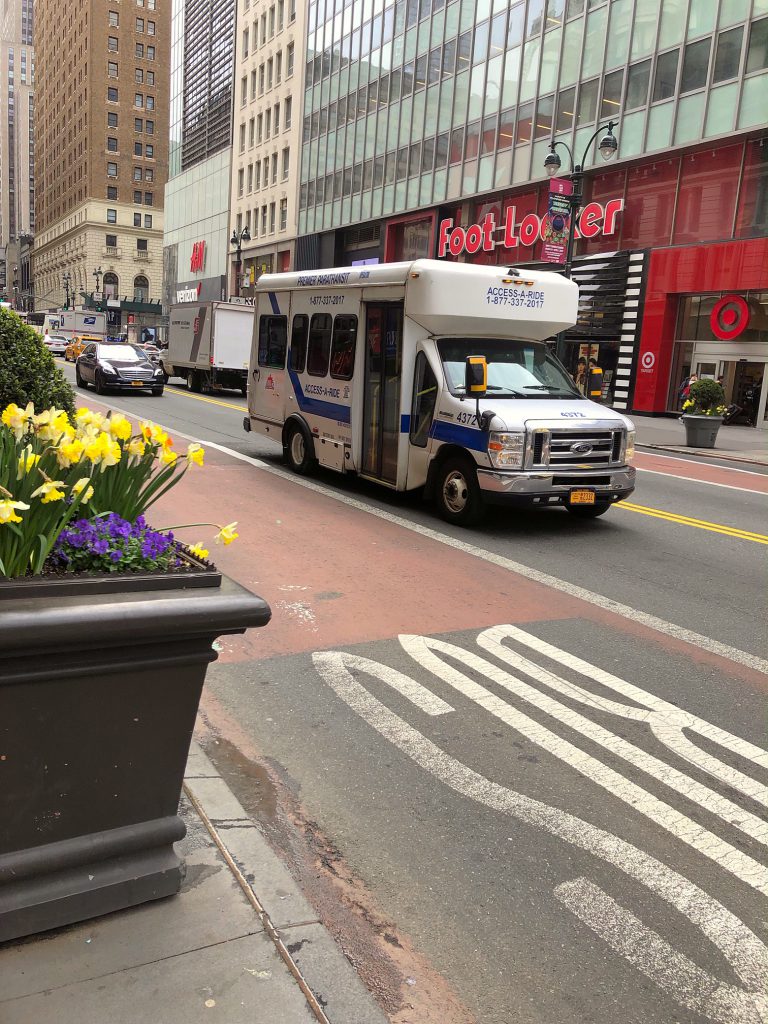By Tywanna Webb
This Thursday, the New York City Department of Transportation heard testimony on a proposed rule which would allow Access-A-Ride vans to use bus lanes.
“We are pleased with the fact that you have proposed regulations that will allow many Access-A-Ride riders to get around the city more quickly and efficiently,” said disability advocate Valerie Joseph. Joseph spoke on behalf of the Brooklyn Center for the Independence of the Disabled (BCID) and the Access-A-Ride Reform Group (ARG).

ARG initially proposed the implementation of this rule in September 2017 as a way to improve accessibility for disabled New Yorkers.
“Non-NYC Transit vehicles are allowed to use bus lanes. Why not us?” Joseph asked, referring to the current bus lane rules.
Currently, bus lanes are reserved for all buses and emergency vehicles. This includes MTA buses, school buses and private buses, such as tour buses and chartered buses.
Shane Anderson, with the Center for Independence of the Disabled, gave testimony about his personal experiences with Access-A-Ride.
“It is unsafe for me to use mass transit at times,” he said. “However, I often risk using our largely inaccessible subway system rather than Access-A-Ride.” Anderson said he often arrives at his destination late when relying on the service.
The proposed rule could help improve travel time for users because bus lanes typically have far less traffic.
While advocates are grateful that DOT has proposed this change, they question why it will only apply to the Access-A-Ride vans. The Access-A-Ride sedans will not benefit from the implementation of this new rule.
“You are only taking on a piece of the puzzle,” said Ruth Lowenkron, a member of New York Lawyers for Public Interest’s Disability Justice Program. “We proposed that all Access-A-Ride vehicles be allowed to use the bus lanes.”
Eric Beaton, Deputy Commissioner of Transportation Planning and Management, agreed to review the distinction between Access-A-Ride vans and sedans within nine months.
“We see this as an issue of equal rights and we see the failure to provide equal access to fast transportation as discrimination,” Lowenkron said.
Last month, disability advocates celebrated a win against the MTA for lack of elevator accessibility. A federal judge ruled that the MTA violated the Americans with Disabilities Act when it failed to install an elevator during the 2014 renovation of a Bronx subway station.
Thursday’s public hearing was held at the Department of Transportation headquarters in Manhattan’s Financial District. The new rule is expected to go into effect within 30 days.

Leave a Reply
You must be logged in to post a comment.